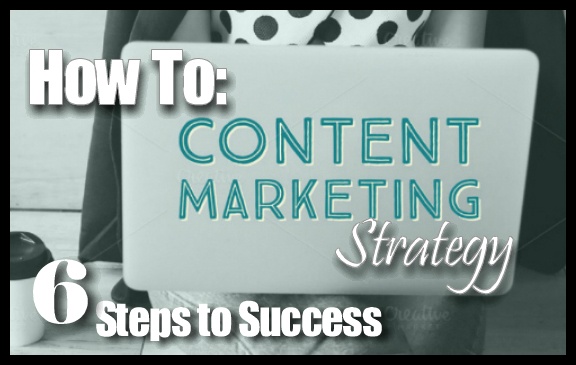What is a CONTENT MARKETING STRATEGY?
Do you have a Content Marketing Strategy? Maybe you should. Content Marketing is a way to think about Social Media as a deliberate branding strategy for your business. Think of it this way: Social Media provides a way for people to easily share information they care about.
Developing a Content Marketing Strategy is the mirror image, a way to provide information that people will want to share. Companies that practice Content Marketing can establish themselves as a trusted information source, and let that reputation spread through the natural process of people sharing and talking. It’s a great way to approach Social Media involvement through the lens of business goals.
Why Develop a Content Marketing Strategy ?
With the skyrocketing popularity of social media, consumers of all types are becoming more and more comfortable, consuming and sharing information, opinions, and ideas openly across the Web. It can be fun and engaging to watch videos on YouTube, share pictures and stories on Facebook, voice your opinions on Twitter and see what the commotion is all about. There’s nothing wrong with diving in. In fact, it’ll give you a good feel for what people are saying about your business or industry, what topics are popular, what behavior is acceptable, and who are the opinion leaders in the social media realm. But after your initial immersion, you’ll likely soon be asking how you can gain business value from these new tools.
The 6 Steps to an Effective Content Marketing Strategy
Try this 6-step approach:
Content Marketing Strategy Step 1: Know Your Audience.
The basic principle behind social media is that you’ll get value by giving value. To be sure, there’s plenty of low-value content floating around, but the content that sticks, that gets shared and paid attention to, is content that offers real value such as Educational value, Entertainment value, Financial value, Food-for-thought value. So, step one for anyone planning social media involvement should be to understand what your audience finds valuable. You may have a clear understanding of that already. Or you may need to do some research. Try search.twitter.com and see who’s talking about your company or industry and what topics are popular. Read your competitors’ blogs and see what topics draw the most comments and re-tweets. Or survey your customers directly and ask them what they value.
Content Marketing Strategy Step 2: Define Your Goals.
Once you have an understanding of what your customers’ value, determine your own goals. Do you wish to attract new customers through your social media efforts? Do you want to build loyalty and repeat business with existing customers? Do you want to address customer concerns and support issues? The obvious answer here is YES to all three; after all, who wouldn’t want those things? But not so fast! Force yourself to be more specific and make sure your goals are measurable. If you pick just one as your primary goal, it will help you be more deliberate in your actions and allow you to better measure your success. If you have multiple goals, be specific about what you want.
Content Marketing Strategy Step 3: Build Your Topics List.
Once you’ve prioritized your goals, you can build a plan to achieve them. Social media marketing is not radically different from what you’ve always done with customers and business associates. It’s just more frequent, more targeted, and has a more grass-roots culture than traditional forms of marketing. It’s also more natural and more fun, which is why so many consumers prefer it. Think of it as talking WITH your customers, not talking AT them. Here’s where the “know your audience” research is critical. What are their issues, challenges, needs, questions? Instead of jumping right to how your product or service can help them, think about what information will help them. Then, list out some topics that address the information on your list. Your goal is to establish your expertise as the first step in creating customer confidence and trust.
Content Marketing Strategy Step 4: Map Out a Content Plan/Editorial Calendar
You’ll quickly see, from your list of customer questions, how you can help them. Not just by selling them your product or service but by addressing their information needs. Let your list of customer challenges and questions be the starting point for your content and editorial calendar. Draw on your own expertise, network of contacts, company knowledge base, industry trends, and other sources to develop content ideas that customers will value. If you can provide answers, critical perspectives, “how to” advice, successful examples, and other helpful topics, you’re on your way to establishing your online expertise and building a foundation of online trust. Once you have a selection of topics, assign them to a calendar.
Plan around key events on your corporate or business calendar. Assign topics to your seasonal cycles. Determine a publication frequency that you can meet. You can start with general timeframes, and firm them up as the dates get closer. You should have 10-12 topics “in the hopper” at any point in time. Ideally, you’ll begin to think like a real editor and begin to keep a strict editorial calendar as you get more comfortable with the concept.
Content Marketing Strategy Step 5: Pick the Appropriate Social Media Channels
Do customer research to determine which social media channels your customers use. Your choice of social media (don’t plan to do them all – at least not initially) will depend on where your customers are and what type of content you plan to share. Facebook is a good platform if you’re looking to reach consumers. LinkedIn is good if you want to reach professionals or host serious business discussions. Consider starting a blog if you have a wealth of information and your customers need ongoing education or advice. Twitter is good for sharing links to other blogs and websites. YouTube is great if you’re looking to demonstrate something visually. Once you’ve chosen your channels, then include a column in your Editorial Calendar to designate which topic you’ll deliver by which channel. Where possible, syndicate your content between channels.
Content Marketing Strategy Step 6: Measure Your Success
Web analytics are an important element of any Internet Marketing effort. Like any marketing campaign, how you measure your success will depend on what goals you’ve set for yourself. But there are plenty of measurement tools available. If you desire to increase traffic to your website, (There’s a measurement tool for that), looking for increased exposure of your business in social media? (There’s a tool for measuring that too), do you desire to decrease customer complaints or negative reviews? (yes, we can measure that too). The important thing is to make sure you have a baseline to measure from, and to track your progress over time.
Revisit and Revise  Your Content Marketing Strategy Often
Your Content Marketing Strategy Often
There is no one perfect content marketing strategy template. Every one will be different. And, there’s always room for improvement. Be sure to revisit your content marketing strategy often, tweak and revise to increase your exposure and desired outcome.
But, documenting your plan will help focus and guide your web development resources. Your content marketing strategy, development and execution are critical to the success of your online business.





 Your Content Marketing Strategy Often
Your Content Marketing Strategy Often




Great post, very comprehensive, nice approach for larger companies.
We have found that few smaller organizations have the budget, patience or willingness to make the research commitment up front. We find that we have to concurrently develop content, strategy and tactics. We do this by taking small steps at first, building on what is working and progressively fleshing out strategy as we evaluate past efforts and plan for the next ones.
How do you approach content strategy with smaller customers? Have you found that the comprehensive approach outlined in this post effective?
Hi John,
Excellent points. Yes, I have found that most smaller companies, even the one- or two-people companies can still benefit from a well-designed business plan, content marketing strategy and SEO design. For us, this is the recipe for a winning website; be it affiliate marketing, real estate or anything else. Search marketing and discovery has changed drastically in the past 5-10 years and the search engines grow smarter and smarter. Long gone are the days of crappy two-page websites dominating the search results. Delivering quality, engaging and useful content is a must. We feel this content marketing plan can be scaled up or down, depending on the budget and needs of each individual company.
Thanks for the insight!
Cheers,
pj